Paste‘s TV Power Rankings: Holiday Catch-Up Edition
Illustration by Christine Fernando and Soleil Collins TV Lists Power List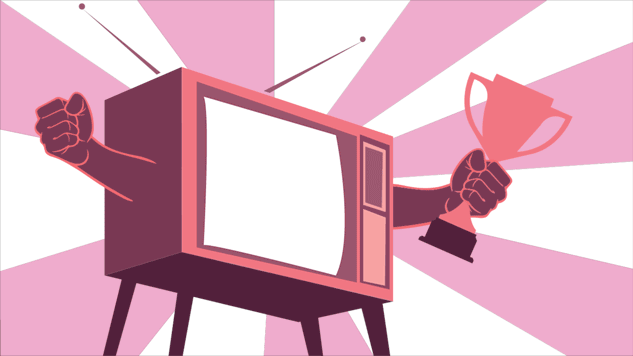
Hello and welcome back to Paste TV’s weekly Power Rankings! We took a short winter’s nap over the holidays but TV did not. Networks and streaming platforms continued to play reindeer games and debut new content. The TV carousel keept turning as a few shows said their final farewell, others ended their first season (Baby Yoda and Jennifer Aniston have something in common) and Netflix gave us one of its craziest shows yet. Therefore, for this week only, we are expanding our time frame and considering any new episodes that aired from December 16 through January 5. So toss a coin to your Witcher and take a look at all the great TV there is right now.
Also of note: We’re changing up our weekly TV videos to focus on just one show we’re loving instead of trying to hit all 10 on this list, so stay tuned for more on that front!
The rules for the Power Rankings are simple: Any series on TV qualifies, whether it’s a comedy, drama, news program, animated series, variety show or sports event. It can be on a network, basic cable, premium channel, Netflix, Amazon, Hulu, YouTube or whatever you can stream on your smart TV, as long as a new episode was made available the previous week—or, in the case of shows released all at once, it has to have been released within the previous four weeks.
The voting panel is composed of Paste editors and TV writers with a pretty broad range of tastes. We’re merciless: a bad episode can knock you right off this list. So much good TV is available right now.
Honorable Mentions: Good Trouble (Freeform), Work in Progress (Showtime), Dare Me (USA), The Expanse (Netflix), High School Musical: The Musical: The Series (Disney+)
10. For All Mankind
Network: AppleTV+
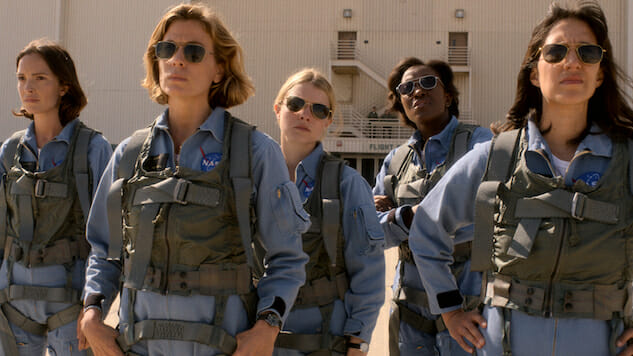
America has never lost gracefully. Exploring alternate histories where America loses usually involves the country’s moral stance defeated by a great political evil. The Nazis win World War 2; the British suppress the revolution. But what if the loss was more complicated than that? More ideologically gray. Less focused on Superman’s truth and justice, and more on his American Way. Apple TV+ asks this question with alt-history For All Mankind’s opening, where the Soviet Union stuns a watching world by beating the U.S. to the moon, and answers it with an enthralling drama dedicated to the flawed pursuit of greatness.
It’s certainly appropriate for a show about the best pilots in the world to have a great pilot episode, but its early success is matched by a show where politics and science branch in ways pleasing for space junkies and astro-nots alike. The sprawling sociopolitical butterfly effects—like how the Nixon administration reacts to, and is affected by, losing the first leg of the space race—are just one of the pleasures to be found in Ronald D. Moore, Matt Wolpert, and Ben Nedivi’s creation.
NASA, pushed as much by a president needing a political victory as by their own wounded pride, shoots for sci-fi. And the writing is smart. Potentially saccharine rah-rah patriotism is undermined by dashed hopes and a permeating need for American exceptionalism that is, in this version of events, proven untrue. Instead, the series works towards a new national culture in its large scale and quiet, workhorse dignities in its small scale. America gets back to its scrappy roots through its space program.
Those scrappy (bordering on irresponsible) elements—government employees doing their best at the behest of their overlords—see a powerhouse turn underdog. Nothing’s more humanizing than trying to break ground with equipment from the lowest bidder. Avoiding the truly sappy by showing the scars left by the program (the fuck-ups, the deaths, the near-misses, the battered relationships) earns the show its most moving moments. Rather than pure golden glow, For All Mankind leaves you smiling and ugly crying at the same time, amazed that humanity has achieved so much despite all its stupid pettiness. Unlike the space program it follows, For All Mankind pursues greatness, succeeds, and plants an Apple flag for the world to see. —Jacob Oller
9. The Morning Show
Network: AppleTV+
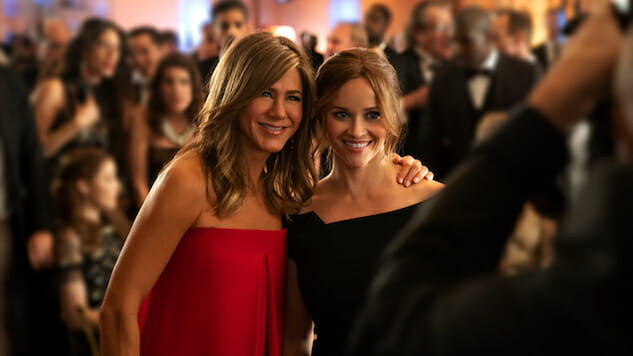
The most damning thing I can say about The Morning Show, the star-studded drama that is part of Apple TV+’s big launch, is that it’s fine. Reminiscent of Studio 60 on the Sunset Strip with its frenetic take on putting on live television, the show is like an old-school network drama—which again is perfectly fine, but not exactly what one would hope for when discussing the crown jewel of the streaming launch.
But let’s back up. Clearly inspired by Matt Lauer’s firing and allegations of sexual misconduct (which also broke two years ago in November of 2017), The Morning Show follows popular morning show co-hosts Alex (Jennifer Aniston) and Mitch (Steve Carell). They’ve worked together for 15 years amid declining ratings for their network UBA. As the show begins, Mitch is fired for his behavior and, with only a few hours notice, Alex must go on air and address the situation. “You are part of this family and we will get through this together,” she says at the top of the hour. Meanwhile, feisty whippersnapper Bradley Jackson (Reese Witherspoon) is biding her time as a reporter for a conservative local affiliate in West Virginia. Her job prospects are stagnated by her uncontrollable temper, but Bradley’s career begins to change when one of her politically-tinged outbursts is videotaped and goes viral.
The Morning Show is chock-full of big names and they all do a fine job. It’s great to have Aniston back on a TV series. Billy Crudup oozes smarm as UBA news division president Cory Ellison. The real problem is that, so far, I don’t have a clear idea of who these characters really are, and we’re left wondering who to root for. Is anyone in this show actually clean? Maybe Bradley is a hero, but … she’s also sneaky and problematic. Alex becomes her own hero, and I want to believe that her heart change was real in the finale, and not just a calculated move for the cameras, but again …
What this show does do really well is illustrate how much harder it is to speak out against systemic harassment in the workplace than it seems on the surface. We are talking about people’s livelihoods, and careers that are are so hard to attain that when you get them you would do anything to keep them. The people in power know that, and it is a self perpetuating cycle. Yes, Me Too is here, but unraveling years and years of abuse is much more complicated than using a simple hashtag. —Amy Amatangelo and Keri Lumm
8. John Mulaney a& the Sack Lunch Bunch
Network: Netflix
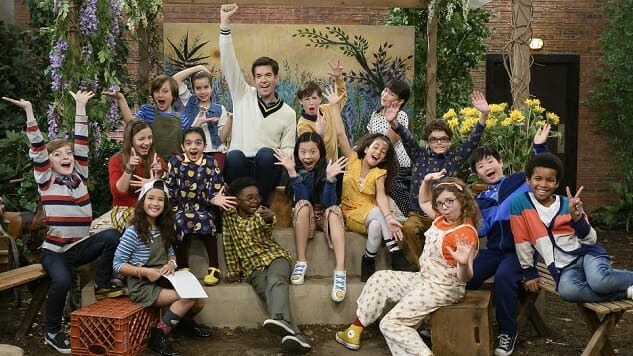
“You know who’s honest—drunks and children.” John Mulaney & the Sack Lunch Bunch opens with these immortal words by Erika Jayne of Real Housewives fame, which accurately sets up what you are about to watch: a kids show made by adults with kids present. But what Mulaney’s nostalgia-soaked special delivers is more honest than any children’s programming before it. How is it honest? Well, it’s mostly about death. Like, there is a lot of talking and singing about death, which seems odd for a children’s show until you remember every fairy tale you’ve ever seen Disney-ified.
The bigger question coming into this special was how the pre-teen actors would fair sharing the screen with one of the decade’s best stand-up comedians. The Sack Lunch Bunch’s collective performance wholly encapsulates the special’s overall aesthetic of being professional yet playful, equally balancing between adults-only and all-ages humor. The kids clearly establish themselves as talented actors and singers while still reminding viewers that they are in fact kids who just happen to also act and not mini Daniel Day Lewises who spend their Saturdays self-taping for A24 films. It’s less Dakota Fanning in Uptown Girls and more Amy Poehler as Dakota Fanning on SNL’s “The Dakota Fanning Show” sketch. They love Hannah Gadsby’s Nanette and recognize Fran Lebowitz on-site but their dancing is just amateur enough to not feel overly-produced while their hilariously frank confessions in a series of interviews in which they are asked about their biggest fears are authentic and endearing. They keep the mood light and fun, just like a children’s show should.
A joyous mixture of silly humor and niche references makes John Mulaney & the Sack Lunch Bunch the most entertaining Netflix original of last year. —Olivia Cathcart
7. Mr. Robot
Network: USA
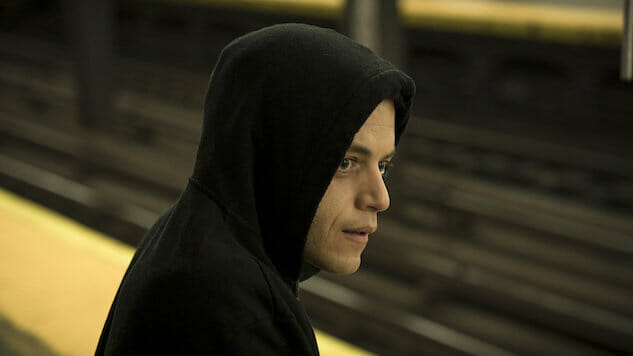
Beginning its fourth and final season with some big shifts for its characters (including at least one shocking death), Mr. Robot remains awe-inspiring for the ways in which it plays with the concept of what you can do on television. Few shows have ever delivered the same level of creative spark on a week-by-week basis, but that’s because Sam Esmail is only one man; the creator and auteur has truly made his mark on the TV landscape with each inventive choice. The (now concluded) season continued to focus on the increased threat presented by the mysterious Whiterose (B.D. Wong) and Elliot’s (Rami Malek) efforts to take her down, with a strong opening that delivered a few major twists. It was all-consuming television that never took its foot off the accelerator, except for the occasional moment of grieving that reminded us that these characters might be caught up in a crazy global conspiracy, but that doesn’t make them any less human.
This all climaxes in the series finale, in which Elliot thinks he’s been transported to a perfect world thanks to the mysterious machine activated by longtime nemesis Whiterose (B.D. Wong). In this new reality, he was never broken or betrayed by the ones he loves—it’s a world where he can be happy. But confronting the doppleganger who has been living a content and somewhat fulfilled life makes the whole simulation fall apart, and Elliot instead comes to realize that the personality he’s put forward for so long isn’t really him; he’s been hiding his true self so that “the mastermind” can fight against the world’s injustice. It’s that realization that helps him come to peace with all of his various selves, and when he wakes up in the hospital, Darlene is waiting to say hello to his true self. There have been happier endings in the history of television, and no one’s bursting into song here (though the transcendent use of M83’s “Outro” gives the final moments of the episode an etherial glow). But it still reflects the sort of ending that feels totally in line with (surprisingly) a Christmas classic. —Liz Shannon Miller
6. Anne with an E
Network: Netflix
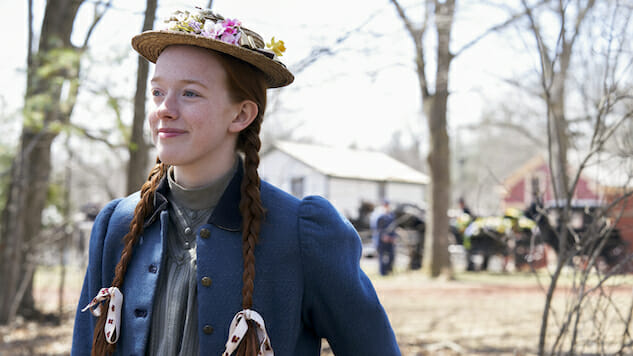
Netflix’s excellent Anne with an E may have had a bit of a shaky start as an Anne of Green Gables adaptation, but the show has gotten better which each new season and truly come into its own. Tragically, this one (Season 3) is set to be its last. That’s a shame for a number of reasons, the foremost among them is that this is a show that understands teenagers so, so well, not just as the TV-trope of agents of camp and chaos, but as having heart and passion to set the world to rights. Each season of Anne has been increasingly triumphant as this core group of Canadian teens at the turn of the 20th century battle societal issues like racism, freedom of speech, and consent while navigating changing friendships, budding crushes, and studying for their college entrance exams. Anne is not always subtle—in fact, it almost never is—but it manages to meaningfully includes the stories of people of color, LGBT narratives, and native peoples in a way that naturally extends the scope of its source material. At its core, Anne is a wonderfully optimistic and unique series that makes you feel better for having watched it, and we could certainly do what more of that. —Allison Keene
5. You
Network: Netflix
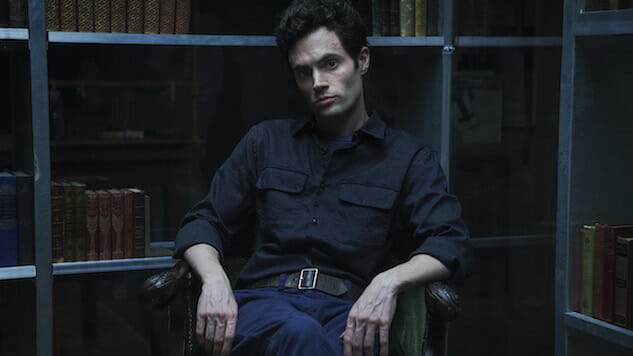
Every sophomore season of a TV show carries with it the weight of expectations based upon the first season, and You could very easily have fallen short of those expectations. However, the first new season made officially for Netflix (Season 1, let us never forget, originated on Lifetime) made a bold swing by relocating from the very specific pretensions of the New York literary world to the very specific pretensions of the Los Angeles wellness scene, and also in the process giving Joe (Penn Badgley) a new, surprisingly hospitable new community to engage with—presuming, of course, he doesn’t find a reason to kill them all. The complicated way in which You plays with how we approach stories about men, women, and romance made this season as mesmerizing as the first, and the way in which the season finale teases a prospective Season 3 is finger-licking good.—Liz Shannon Miller
4. The Marvelous Mrs. Maisel
Network: Amazon Prime

When it comes to the show’s particular brand of entertainment, your enjoyment of The Marvelous Mrs. Maisel is down to whether or not you want to buy into this escapist world and showrunner Amy Sherman-Palladino’s very specific dialogue patterns and set aesthetics. People talk in this show, and I mean talk, and the series’ pace is a whirlwind of nightclubs and jokes and stage performances. The third season is even more indulgent than the first two in those terms; the introduction of Shy Baldwin and his Big Band sound remind one a little bit of watching HBO’s Treme, which would just wander into a musical interlude and stay there for as long as it liked. Maisel is visually dazzling, full of colorful patterns, opulent settings, and lavish fabrics.
In that and more, The Marvelous Mrs. Maisel continues to be a pleasant escapist parade of sartorial and financial fantasy, even if the individual stories may not be quite as interesting or as emotionally involving as in the past. Midge’s charmed life is now taking her across the country to do standup, some of which lands and some of which does not, and Rachel Brosnahan continues to be exceptionally adept at balancing Midge’s girly charms with her more mature, profane frustrations. So is Maisel prestige? Is it Important? Does it matter? As glittery fun, whether or not it ultimately sticks with you, it’s greatly entertaining and very, very funny. And for those who have enjoyed the first two seasons, that should be reasons enough to buy another ticket to the show. —Allison Keene
3. Doctor Who
Network: BBC America
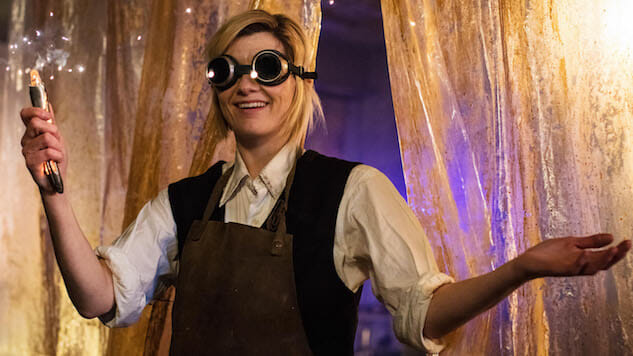
When Doctor Who kicks off its second season with Jodie Whittaker, only the fate of the universe is at stake. The two-part Bond-inspired “Spyfall” begins with Earth’s top spies getting taken out by a mysterious new threat involving a nasty trifecta: a new extra-dimensional alien race, a nefarious tech company stomping all over our privacy and one of the Doctor’s biggest nemeses. It’s a lot for the Doctor to handle, even with the help of her three trusty companions and a couple of bonus historical figures (Ada Lovelace for the win). Don’t panic; the Doctor is back. —Josh Jackson
2. The Witcher
Network: Netflix
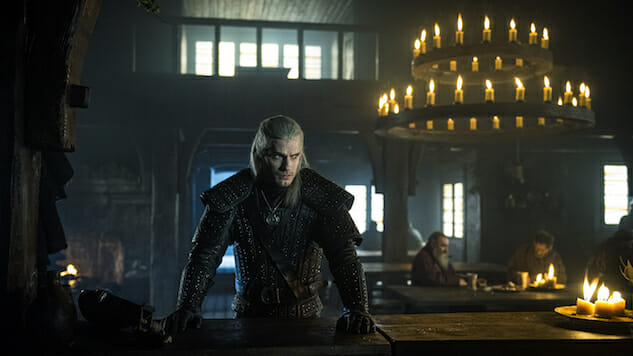
Henry Cavill’s Geralt of Rivia, a Witcher, roams far and wide killing monsters for bounties. It’s all he’s good for; it’s all he was made to do. The mutant Aragorn is all gruff speech, dadly stubble, and exciting swordplay. It’s a tough job playing a character known for his emotionlessness, made tougher when he’s also appointed the shepherd to a storied fantasy universe. But Cavill and showrunner Lauren Schmidt Hissrich’s adaptation of Andrzej Sapkowski’s Witcher novels (which themselves were turned into a beloved series of videogames) is up to snuff due to its willingness to play by its source’s rules, bringing high fantasy fun to Netflix for anyone willing to vault a few hurdles.
Shows get exponentially easier to watch when the lead is having this much fun. Cavill delights in every grimace as his grimy, sour Geralt traverses locales familiar to any Dungeons & Dragons campaign. Candle-strewn taverns, pornographic wizard illusions, and foolish nobles—no matter the job, Geralt perseveres in true Lawful Neutral form (to keep things in D&D terms). A bemused yet not unkind cynicism comes across in Cavill’s slow baritone and rare, slight smile. It’s the best he’s been aside from The Man from U.N.C.L.E. and everyone either hates him or is horny for him. Often, it’s both. And yes, those looking for Outlander levels of long-haired, musclebound shirtlessness will find what they seek.
If you have a background with fantasy, a knack for rolling with crazy shit, or a general love for Witchery things—and buy into the tone—The Witcher has lots to love. It can be campy, with life-or-death conversations taking place at a magically-induced Eyes Wide Shut orgy. It can be badass, with a powerful mage blending gender politics, fantasy lore, and deep characterization when telling Geralt to “fuck off” in the middle of a magical battle. These two can mix like werewolves and silver, but when they work together, The Witcher is a wildly entertaining treat for newcomers and long-time fans alike.—Jacob Oller
1. The Mandalorian
Network: Disney+
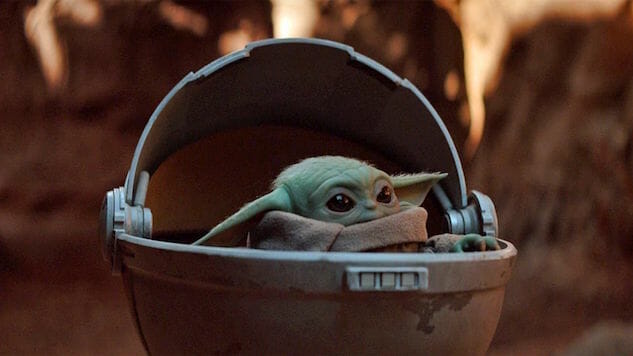
The Mandalorian’s finale, “Redemption,” was an emotionally satisfying payoff (and a rip-roaring ride) to conclude a charming, wandering season about a space cowboy and his adopted green son. Though there were some who didn’t like the show’s very episodically-structured season—with its brief cameos and unexplained motivations—I loved the throwback format and the fun the show had with a variety of well-worn genre tropes. And since it was just tangential to the main Star Wars narrative, it was able to both play around with vaguely-familiar characters recognized by casual viewers and pack its story full of Easter eggs for uber-fans.
I could continue to say nice things about this inaugural season’s writers and directors, the wonderful cast, the care with which the show was obviously created, and the craftsmanship that put an emphasis on practical effects, but the final word is really Baby Yoda. Because he is, objectively, the absolute best.
And not to bring The Rise of Skywalker into this, but one really must: “Redemption” also capped off a story of a found family in a much more resonate way than the movie’s reveal of Rey’s parentage (real and forged) did. It showed us the bond created between these two unlikely individuals, both of whom were in exile from their storied clans, but focusing on who we knew them as, not putting an emphasis on what their names are to give their stories meaning. Consider that we still don’t have a real name or a species for Baby Yoda, or even had a face for Mando until the end. It’s because those things didn’t really matter; it was about the choices they made now, together.
“Redemption” also set up an easy Season 2 quest for Mando to try and find more of Baby Yoda’s species, but honestly that is less important than having the two just continue their space adventures together, stopping off at taverns for bone broth, and finding friends and babysitters along the way. —Allison Keene
For all the latest TV news, reviews, lists and features, follow @Paste_TV.